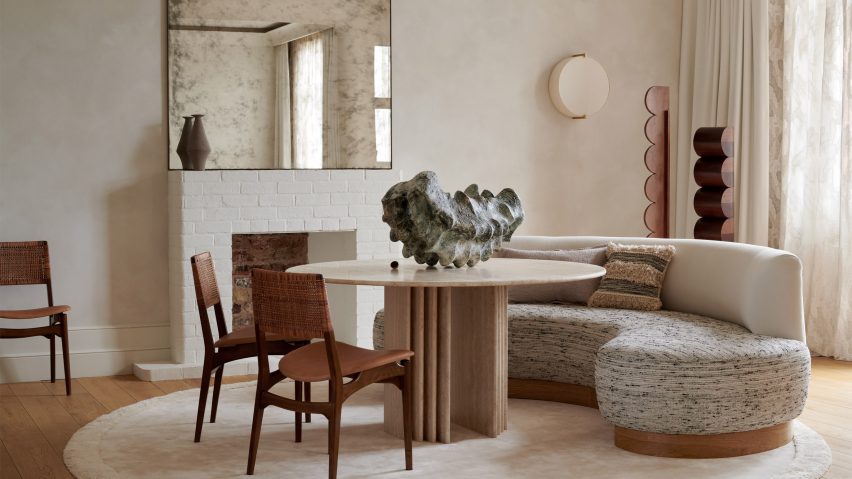
Tala Fustok fills Hyde Park apartment with contemporary art and vintage furniture
Tala Fustok Studio has transformed the interior of an apartment in west London into a "calm sanctuary" containing carefully chosen artworks and furnishings influenced by the travels of its owner.
The Palace Gate apartment is located on the fourth floor of a Victorian mansion block neighbouring Hyde Park in the Royal Borough of Kensington and Chelsea.
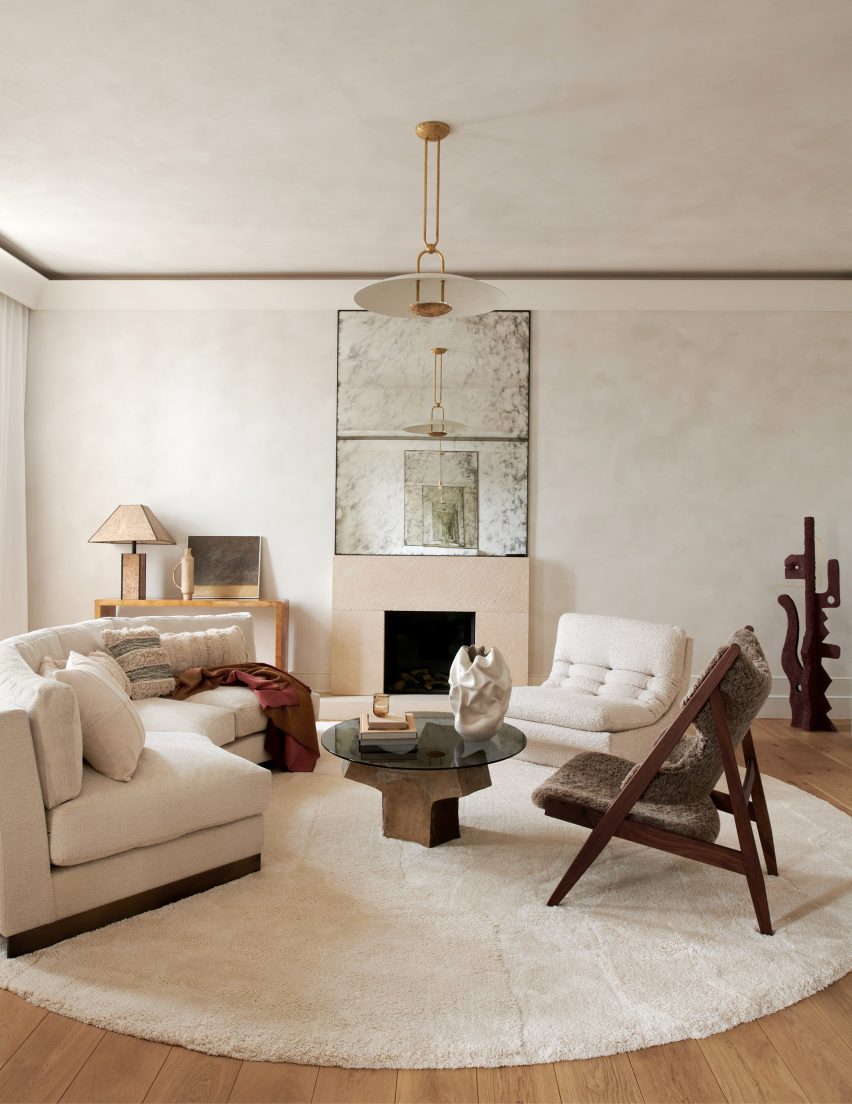
Local interior designer Tala Fustok set out to turn the four-bedroom property into a relaxing pied-a-terre containing a collection of contemporary artworks.
"I wanted to create a calm sanctuary to balance the hustle and bustle of the city and the owner's lifestyle," Fustok told Dezeen.
"Our client is an ardent traveller, frequenting North Africa and copious European cities," she added. "We wanted to ensure this was reflected in the design, as a sort of escapism and bringing a dose or reminder of those settings to their London home."
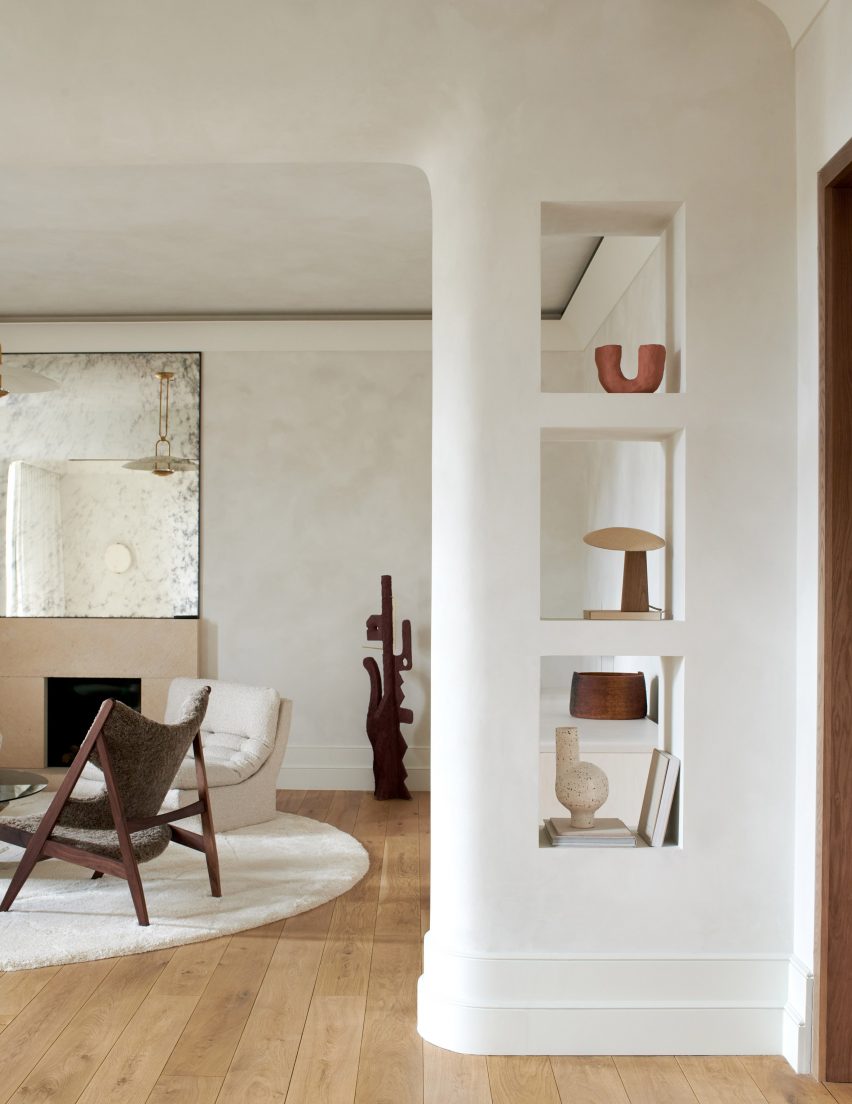
The interior features a palette of soft colours intended to evoke a sunset, with textures of stone and earthy fabrics adding to the nomadic and natural feel.
The 252-square-metre interior was reorganised through several structural interventions that opened up the living and dining area, as well as combining two bedrooms to form a large principal bedroom and dressing area.
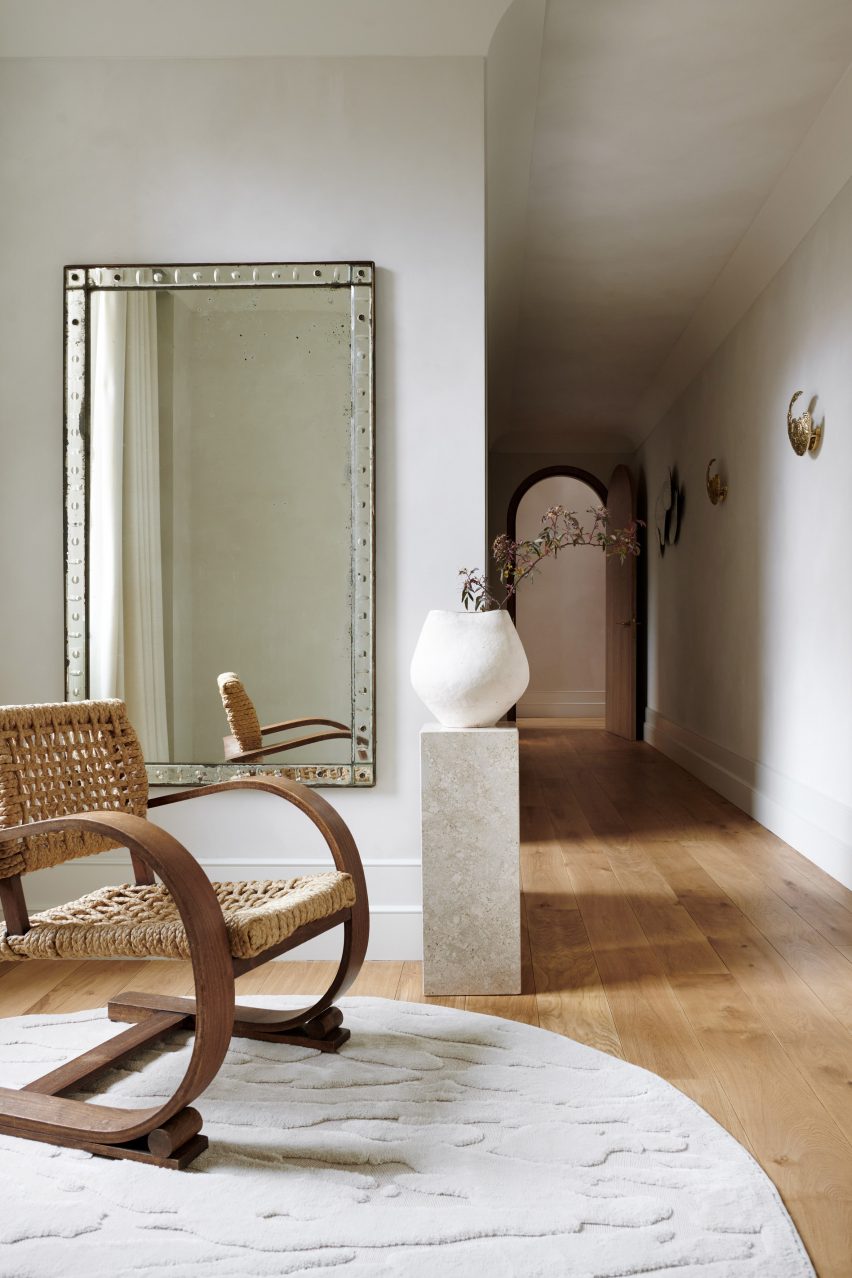
In the main living space, steel beams are concealed within a room divider featuring curved surfaces and open shelves that allow light and views throughout, while providing spaces for displaying artwork.
Deep hues and textures including plastered walls and velvet upholstery add richness and variety to the scheme, making the most of the light that floods into the southwest-facing spaces.
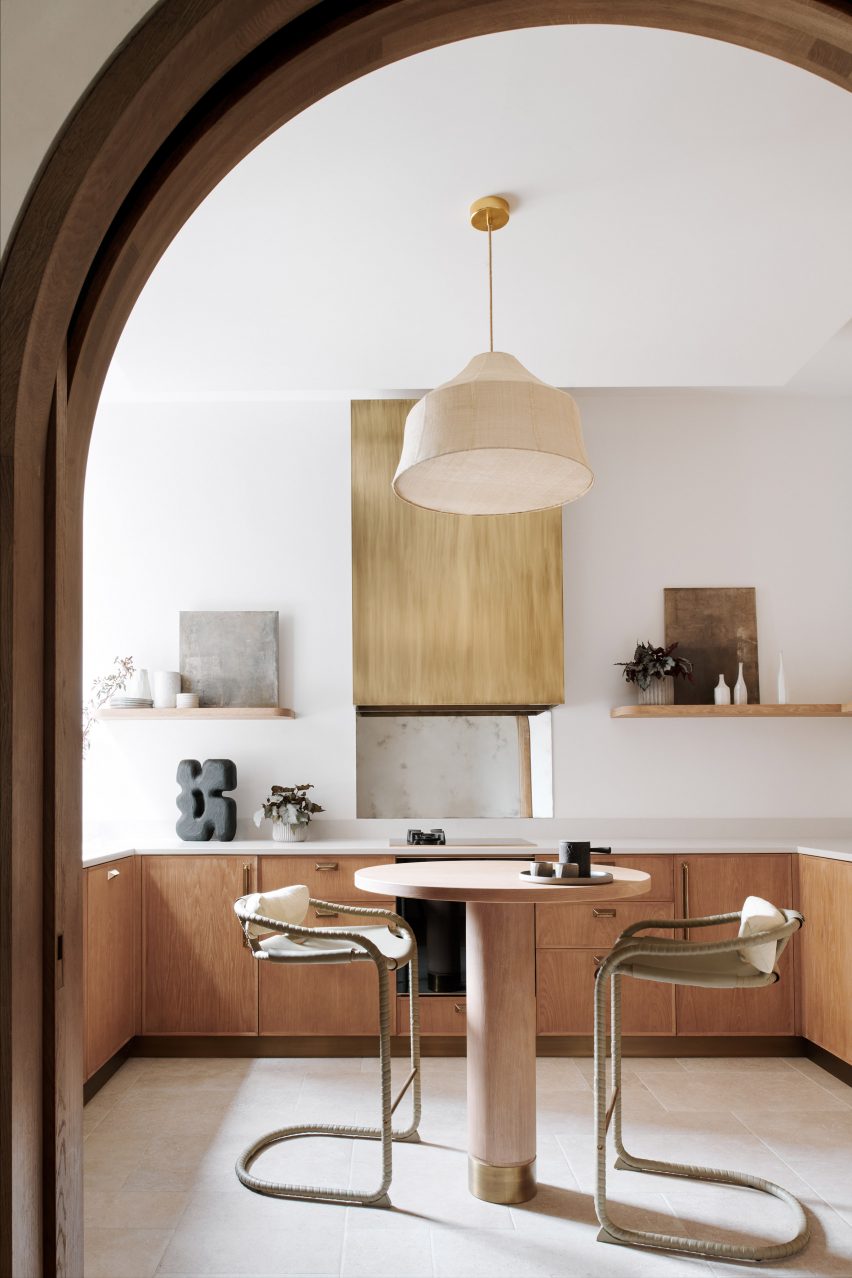
A monochromatic colour scheme forms a simple backdrop for the artworks, vintage furniture and bespoke elements created to enhance the home's restful atmosphere.
Fustok's studio was involved in selecting the unique furnishings and art for the home in order to elevate the spaces and create consistency throughout the different rooms.
A pared-back entrance hall – containing a Venetian mirror, a woven chair and a plinth from east London's M.A.H Gallery along with a vase from Flow Gallery – leads through to the dining room where a mirror from The Antique Mirror Company hangs above a painted brick fireplace.
A 1970s Italian travertine table combines with a curved sofa to create a space for informal dining. On top of the table is a centrepiece from London's Vessel gallery and beneath sits a shaggy rug by designer Tim Page.
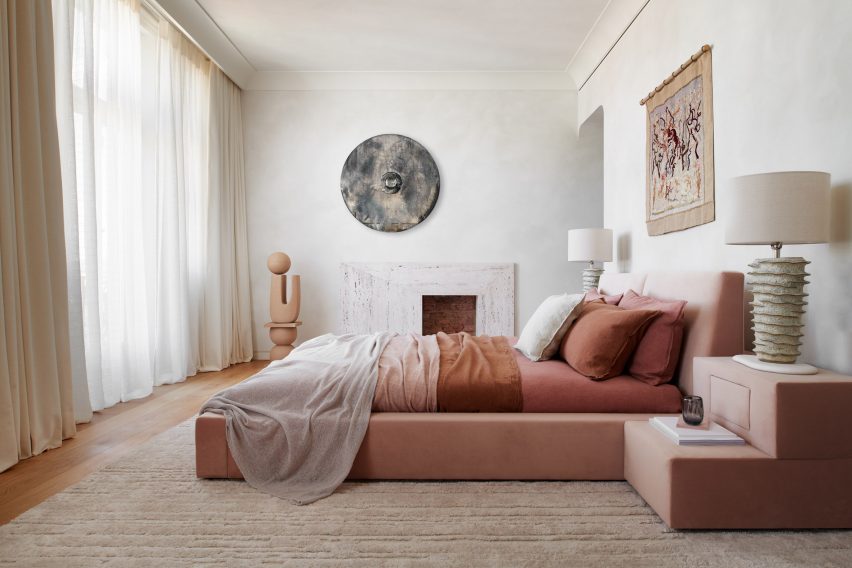
Fustok added double arched doors to connect the dining room with the adjacent kitchen, where wooden cabinetry contrasts with brass details including the cooker hood.
The living room features a travertine fireplace along with a mirror and rug that match those used in the dining room. Bespoke furnishings made of bleached plywood, brass and timber contribute to the space's relaxed, rustic character.
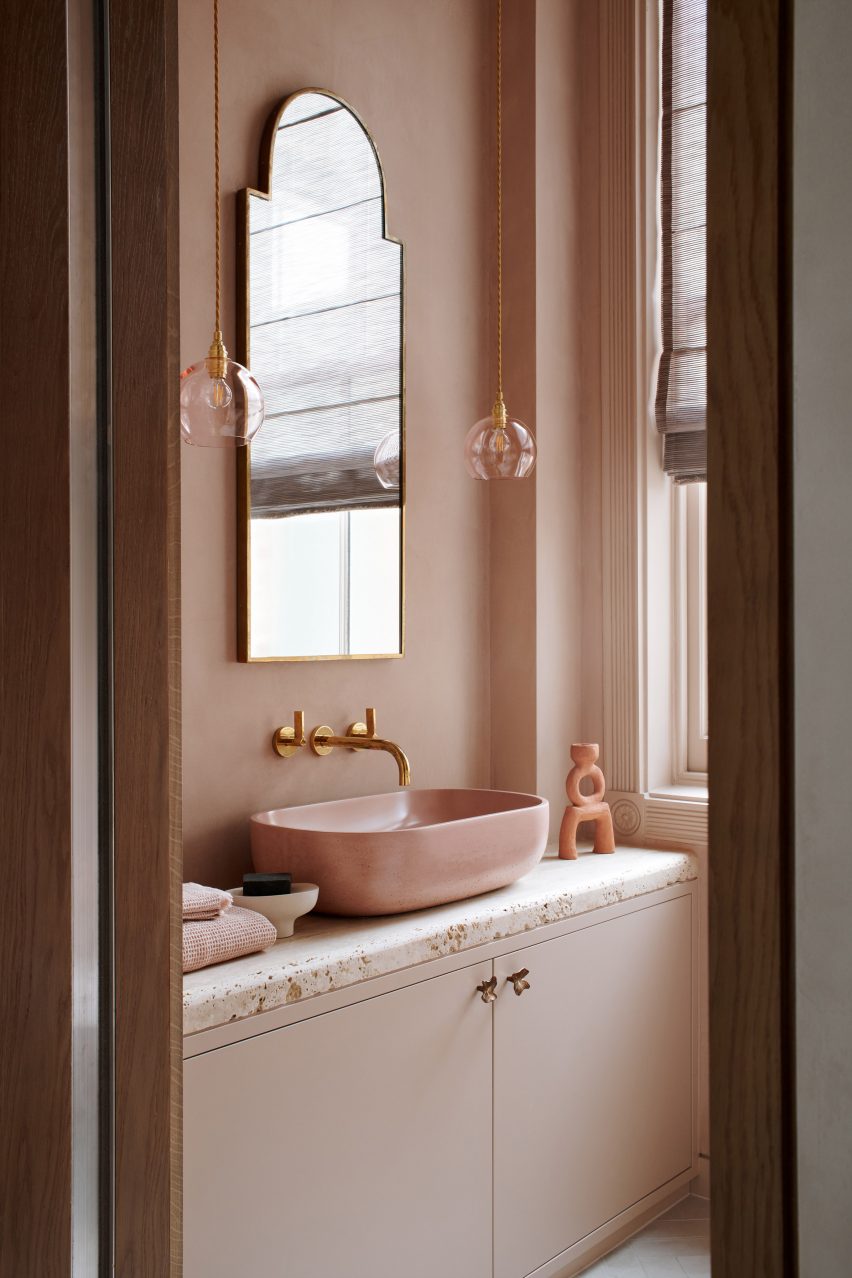
In the main bedroom, a 1960s-style bed upholstered in dusty pink velvet provides a bold centrepiece.
The tapestry above the bed is from London gallery Schmid McDonagh, while a bespoke mirror by French artist Christophe Gaignon is positioned above the stone fireplace.
A dressing area alongside the main bedroom is arranged around a bespoke storage island wrapped in leather and plywood, which is illuminated from above by a pendant light from British design studio Pinch.
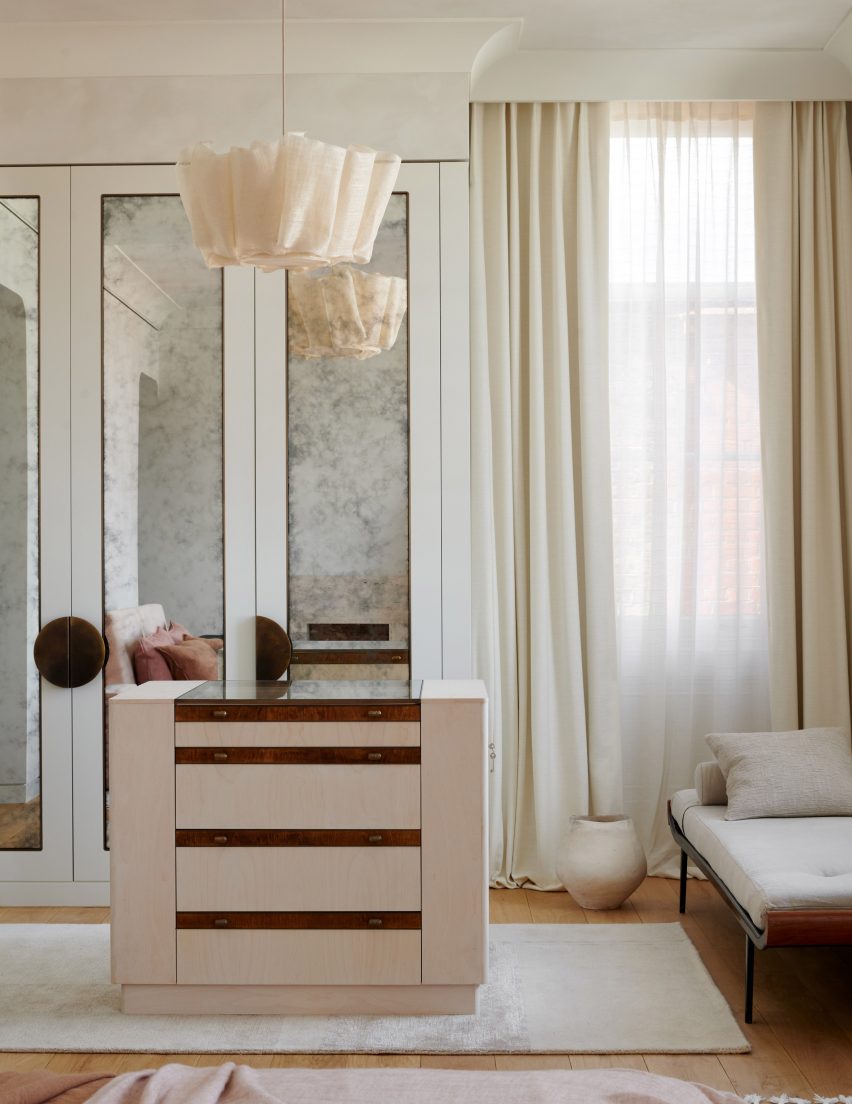
The Moroccan-informed en-suite bathroom contains a bespoke travertine sink and zellige tiles in the shower. The design of this space encapsulates the nomadic inspirations seen throughout the residence.
Tala Fustok studied at the Architectural Association before setting up her studio in west London.
Her previous projects include a Manhattan loft with a calm ambience and an office for game developer Ninja Theory in Cambridge, which features a blood-red bar and an all-blue cinema room.
The styling is by Sania Pell and photography by Michael Sinclair.